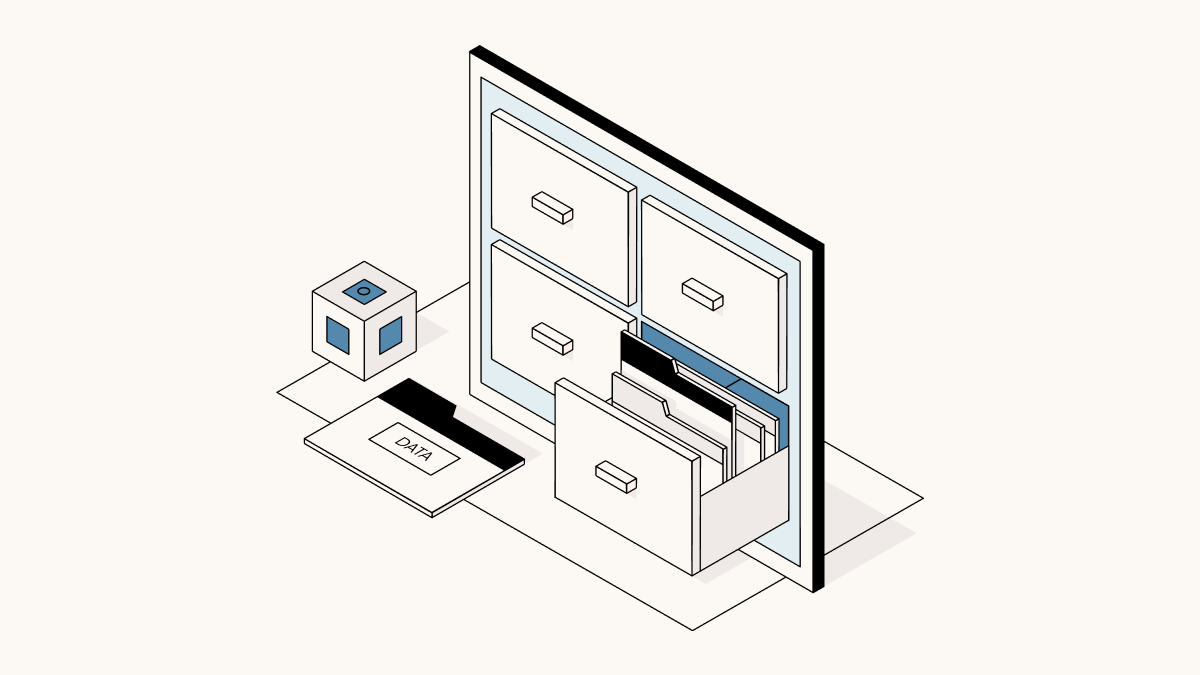What is a data room?
In the past, businesses used physical data rooms with filing cabinets to keep their information safe. Today, a virtual data room (VDR) or “deal room” is a secure digital place to share your company’s sensitive documents and confidential information. Learn why every startup needs a virtual data room—and how to implement one for your company.
When do you need a data room?
Data rooms are the backbone of confidential document exchange and due diligence (a process investors like venture capitalists use to investigate a startup’s operations and financials to see whether the investment is viable). Some due diligence processes take a couple of weeks, while others take months.
During due diligence, a data room becomes your company’s trusted ally. An organized data room streamlines the process and enhances transparency, which can tip the scales in favor of a successful deal. Data room use cases include any activities that involve the exchange of confidential data, such as fundraising, mergers, acquisitions, and other legal transactions.
Mergers and acquisitions (M&A)
During an M&A transaction, a data room centralizes documents, expediting review and allowing both the buyer to focus on the strategic aspects of the deal and evaluate the target company's value, risks, and synergy opportunities efficiently.
Initial public offerings (IPOs)
Companies considering an IPO typically spend several months preparing for the rigors of being a public company. Setting up a virtual data room helps the company go through the due diligence process with underwriters during the IPO process and facilitates fast and effective investor communication, helping save time and money. This transparency and accessibility are pivotal in facilitating a smooth and well-informed IPO process, instilling confidence in investors and regulatory bodies alike.
→ Guide: IPO Readiness Guide & Checklist
Fundraising
When you’re trying to raise capital, investors want to see your company’s costs, estimated runway, and funding needs. Having all of that information organized in your data room, along with a pitch deck, can speed the process along and increase investor confidence. For instance, a technology startup seeking funding can upload confidential revenue projections, IP ownership documentation, and detailed financial records into the data room, which potential investors can access with appropriate permissions. This enables investors to conduct thorough due diligence, evaluate the company's growth prospects, and make informed investment decisions.
Legal transactions
The truth is that any type of business transaction demands meticulous documentation and confidentiality. A data room simplifies the exchange of legal information, enabling authorized parties to access documents securely. This fortified digital environment not only ensures a smooth legal process but also simplifies intricate procedures.
Data room best practices
Here are some best practices in data room implementation. By taking these steps, you can properly secure the integrity of your company’s sensitive information, optimize the outcomes of critical transactions, and build trust with potential investors and partners.
Access management
Not all parties need access to every document. Use permissions to control what information specific team members can see. For instance, an HR professional might not need to see the same detailed financial records as a CFO.
Intuitive organization
To create an easily navigable data room, establish a hierarchical folder structure with main categories, subfolders, and standardized document names. Include a master index for guidance and maintain clear access permissions. Regularly update the structure to accommodate changing needs and ensure documents are easily accessible and intuitively organized.
Periodic reviews
Regularly review your data room’s activity log to maintain security and monitor usage. We also recommend keeping your data room up-to-date periodically or following any material event. Old financial statements or outdated contracts can mislead potential investors or partners.
User education
User education for a data room is essential. Start by providing clear instructions on how to access, navigate, and search for information within the data room. Educate users on data security and access permissions, highlighting the importance of confidentiality and the consequences of mishandling data. Provide user-friendly training materials and sessions to facilitate familiarization.
Use watermarks
For ultra-sensitive documents, consider using watermarks to decrease the risk of theft or document alteration. Watermarks also discourage unauthorized file sharing or information leaks.
Creating a data room for investors: What to include
In a data room designed for investors, you should include critical financial, legal, and operational documents that provide a comprehensive view of the company's performance and potential risks.
Consider including the following in your data room:
-
Financial statements (e.g., balance sheets, income statements, cash flow statements)
-
Business plans
-
Market analysis
-
Legal contracts (e.g., partnerships, leases, and loans),
-
Corporate governance documents
-
And any other information requested in the investor’s due diligence request list or relevant to the investment decision.
Carta Launch customers and fund admins can create their own data room for free. Learn more or get started for free below.



